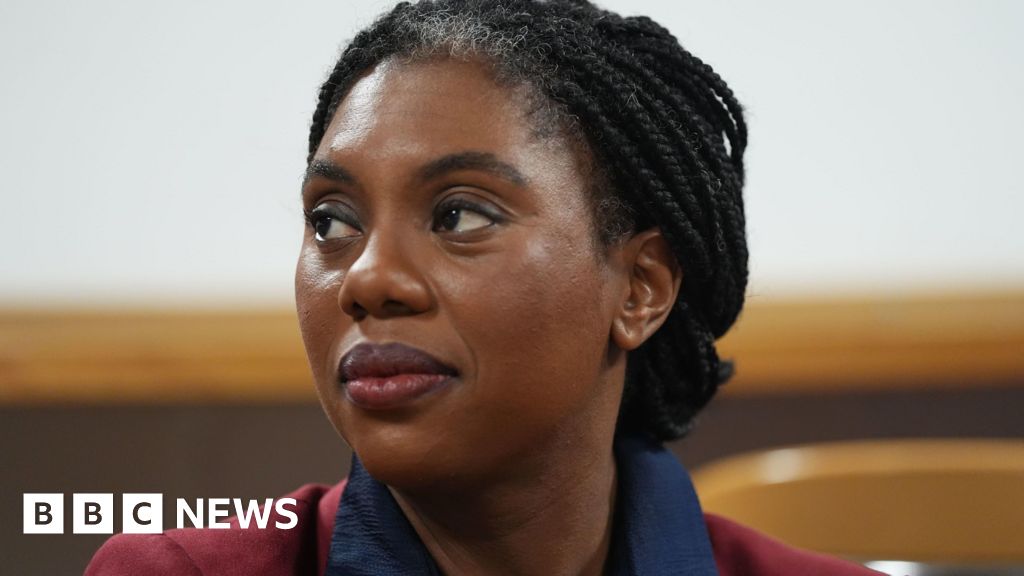ARTICLE AD BOX
By Chris Andrews
BBC News NI
Image source, PA Media
Image caption,Michelle O'Neill told Boris Johnson the Democratic Unionist Party (DUP) was punishing people by not forming an executive
Northern Ireland's people cannot be left "high and dry" by the DUP's refusal to form an executive, Sinn Féin's Michelle O'Neill has warned the prime minister.
Ms O'Neill said the DUP's actions were punishing workers and families.
She is entitled to become NI's first nationalist first minister after Thursday's historic election.
The DUP has said it will not nominate a deputy first minister unless concerns about the NI Protocol are resolved.
NI power sharing requires the largest unionist and nationalist parties to share first and deputy first minister posts.
Both Ms O'Neill and DUP leader Sir Jeffrey Donaldson spoke to Boris Johnson on Tuesday morning.
The first sitting of the Northern Ireland Assembly - in which Sinn Féin is now the largest party - is scheduled to take place on Friday.
However, there will be no governing executive without the DUP's support as the second largest party.
Instead, ministers continue to run their respective departments, but no new decisions, such as agreeing a budget, can be taken.
Unilateral action
The DUP, which supported Brexit, has protested against the Northern Ireland Protocol, a part of the UK's deal with the EU which keeps Northern Ireland aligned with the EU's single market for goods.
This was designed to ensure free trade across an open Irish border, but it has in turn created some new trade barriers for the movement of goods across the Irish Sea.
In February, the party removed Paul Givan from his role as first minister in protest against the protocol, triggering the collapse of the Northern Ireland Executive.
They said the protocol had undermined Northern Ireland's position in the UK.
The Democratic Unionist Party says it will not join a power-sharing government without action on the protocol
Taoiseach (Irish prime minister) Micheál Martin said he had stressed the need to intensify EU and UK discussions to avoid any unilateral action during a discussion with Mr Johnson on Tuesday.
'Action must follow'
After his call with the prime minister, Sir Jeffrey said he would listen to any government plans to deal with the protocol in Tuesday's Queen's Speech, however, he warned "action must follow words".
He repeated his statement that the party would not nominate to the executive until there was "decisive action" on the issue.
Ms O'Neill said the DUP's actions said the public could not be a pawn in the British government's game of chicken with the EU.
"Time to form an executive now," she said in a social media post.
A Downing Street source told BBC News that the prime minister spent an hour on the phone to Northern Ireland's political leaders.
They added the government would act "responsibly" with regards to the protocol and its negotiations with the EU.
Michelle O'Neill says the assembly election shows that the public want to see a new Northern Ireland Executive formed.
The calls followed meetings held by the Northern Ireland Secretary on Monday with the leaders of Stormont's five largest parties.
Brandon Lewis said the government would "continue to press the EU to agree the crucial changes that are urgently needed".
'Game of chicken'
Sinn Féin, whose ultimate goal is for Northern Ireland to leave the UK and become one country with the Republic of Ireland, won the most seats - 27 out of 90 - after Thursday's vote.
This means the party can nominate Northern Ireland's first minister, an unprecedented move for a nationalist party, but it is reliant on the DUP taking up its position as deputy first minister.
The roles form a joint office, with equal responsibility, however, the allocation of the titles is regarded as symbolically important.
Ulster Unionist Party (UUP) leader Doug Beattie said the Northern Ireland Protocol should be dealt with as the obstacle to a functioning executive at Stormont.
"We all know what the landing zone is, no checks on goods from Great Britain to Northern Ireland if they are staying in Northern Ireland. That gets rid of the border down the Irish Sea.
"The EU Commission know this, the UK government know this and all five political parties who would form the executive know this also."
The Social Democratic and Labour Party (SDLP) has said it will be going into opposition after Thursday's vote in which it returned with eight assembly members (MLAs) after losing four seats.
The party will not be replacing its deputy leader Nichola Mallon in her role as infrastructure minister, after she failed to get elected in Belfast North.
A future border poll?
The victory for Sinn Féin in this election does not mean a vote on Irish unification - also known as a border poll - is imminent.
The Northern Ireland Act 1998 - which followed the signing of the Good Friday Agreement peace deal - stated that Northern Ireland remained part of the United Kingdom and "shall not cease to be so without the consent of a majority of the people of Northern Ireland voting in a poll".
It also stated that the Northern Ireland secretary should agree to hold a poll if it appeared likely that a majority of people wanted a united Ireland.
Successive opinion polls suggest that is not yet the case, with the most recent, published in April, putting support at about a third.
Although Sinn Féin's vote rose at the election, the combined vote for the main parties which support a border poll - Sinn Féin, the SDLP, People Before Profit and Aontú - fell.
Sinn Féin leader Mary Lou McDonald said planning for a unity referendum would come within a "five-year framework".
There are still more unionists than nationalists at Stormont, 37 to 35.

 2 years ago
75
2 years ago
75








 English (US) ·
English (US) ·